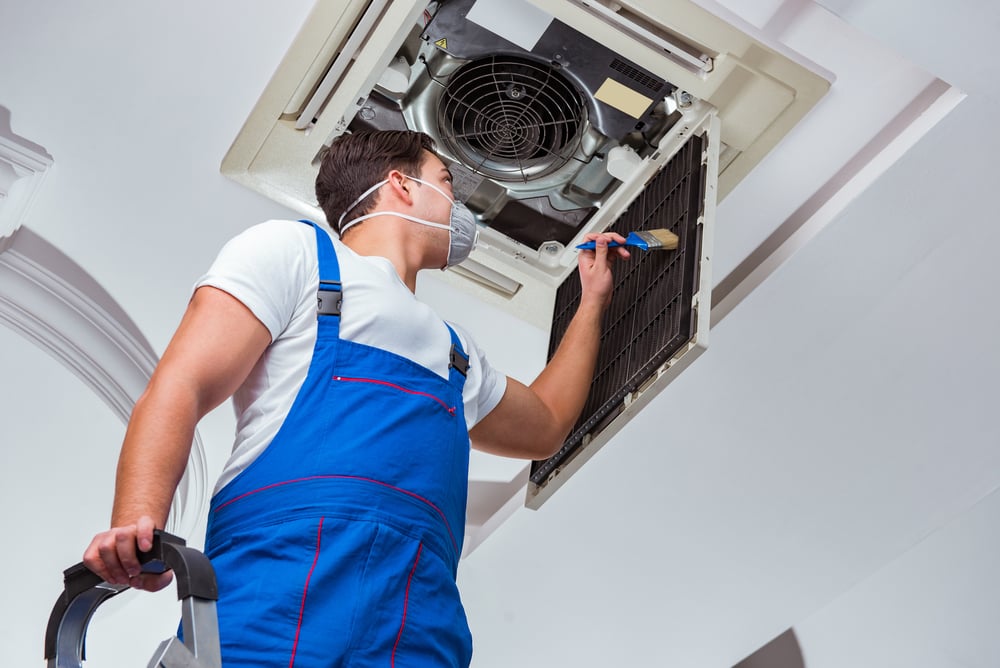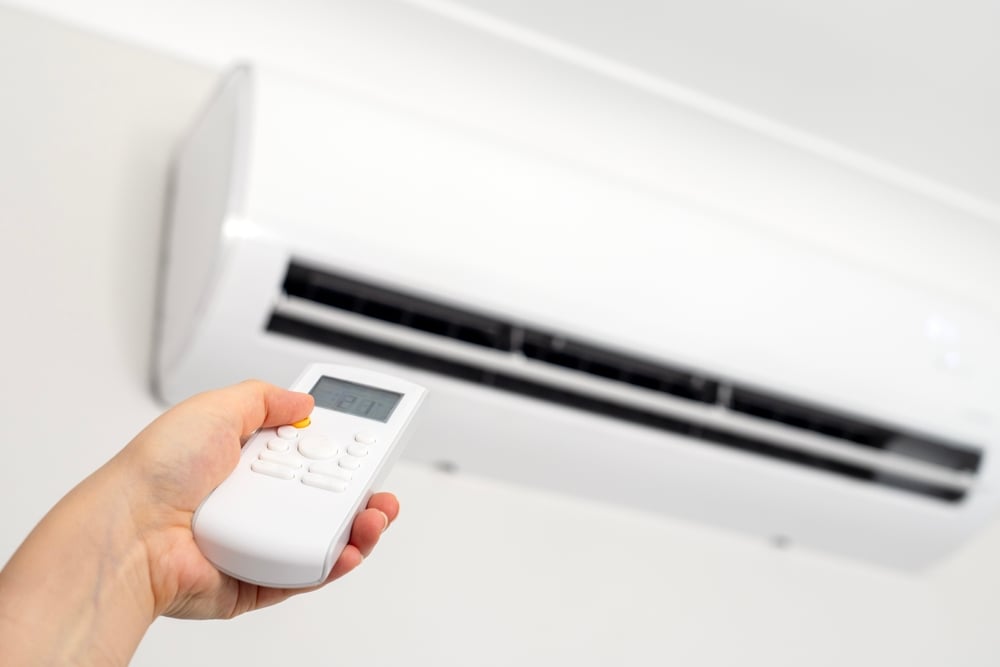Noticing your air conditioner is leaking water can be worrying. It usually happens because something within the system is preventing condensation from draining away as it should. Left unresolved, this water can damage walls, ceilings, or flooring and may even point to a deeper fault, such as a refrigerant leak.
Understanding why your air conditioning system is leaking helps you act quickly, protect your home, and avoid expensive repairs. In this guide, we’ll explain the most common causes, how to stop leaks, and when to call a professional.
Why an Air Conditioner Leaks Water
At its core, an air conditioner cools air by drawing it over the evaporator coil. Moisture from the air condenses on the coil and usually drains away through a condensate tray and pipe. If something interrupts this process, water builds up and spills where it shouldn’t.
The main reasons are usually:
- Clogged condensate drain line – dirt, dust, or mould blocks the pipe.
- Dirty air filter – restricted airflow causes the coil to freeze; when the ice melts, water overflows.
- Damaged drain pan – cracks or rust allow leaks.
- Low refrigerant levels – a refrigerant leak reduces pressure, freezing the coil.
- Poor installation or uneven unit – water can’t flow correctly into the drain line.
How to Stop an Air Conditioner from Leaking Water
Once you’ve noticed it’s leaking, you ideally want to determine the cause and stop it as soon as possible to prevent any lasting damage to your system or the property.
There are a few checks you can carry out yourself. However, many of these issues are best solved with the help of an experienced air conditioning engineer to ensure the repair is safe and long-lasting.
- Clean or replace the filters
- Clogged filters restrict airflow, which can cause the evaporator coil to freeze.
- When the ice melts, excess water escapes into your home.
- Replacing filters every 1–3 months helps prevent leaks and keeps your system efficient.
- If leaks continue even after changing filters, it’s time to book a professional inspection.
- Clear the drain line
- The condensate drain line carries water away from your unit, but dirt and mould can block it.
- Homeowners can sometimes flush the line with warm water and vinegar or use a wet/dry vacuum.
- If the blockage persists, our engineers have specialist tools to clear the pipe fully and prevent future problems.
- Inspect the drain pan
- The drain pan collects condensation before it drains away.
- Cracks or rust allow water to escape early.
- While you might spot obvious damage, replacing a pan is best handled by an engineer to ensure the fit is correct and the leak is completely fixed.
- Check the installation
- If your air conditioning unit isn’t level, water can pool where it shouldn’t.
- This can be common with ducted air conditioning systems that have outdoor units, which have shifted over time.
- A spirit level can confirm if it’s sitting unevenly, but re-securing or re-positioning should be carried out by a professional to avoid damaging the pipework.
- Call an engineer for refrigerant issues
- Low refrigerant levels or leaks reduce system pressure, freeze coils, and lead to water spills.
- Signs include hissing noises, poor cooling, or visible ice on the unit.
- Only a qualified engineer should handle refrigerant, as it’s both regulated and potentially hazardous.

Can You Still Use an AC That’s Leaking?
Once you’ve spotted that your air conditioning system is leaking, it’s best to stop using it. Continuing to run a leaking AC unit risks further water damage to your property and can make any underlying problem worse. For example, if the cause is a refrigerant issue, the longer it runs, the more strain it puts on the system.
Should You Turn Off the AC if It’s Leaking Water?

Yes. Always switch the system off at the first sign of a leak. This prevents extra water from escaping and gives you a chance to inspect the air conditioning unit safely. Once off, you can check for dirty filters, a clogged drain line, or a full drain pan before deciding whether to call an engineer.
Is It Normal for an AC to Leak Water Inside?
No. Some water outside around the outdoor unit is normal, but any indoor leak is a warning sign. The most common culprits are a blocked condensate line or frozen coil. If ignored, leaks inside can lead to mould growth, damage to plaster, and even electrical hazards.
When It Might Be Time for a New Air Conditioning Unit
Even with regular maintenance, air conditioning units don’t last forever. It may be more cost-effective to replace and reinstall a new system if:
- Leaks and other breakdowns happen frequently.
- The unit is more than 10–15 years old.
- You notice rising energy bills due to poor efficiency.
- Repairs are becoming more expensive than replacement.
- The system struggles to keep your space cool, even after servicing.
Upgrading to a modern, energy-efficient unit can save money in the long run and reduce the likelihood of recurring leaks.
Preventing Future AC Leaks
Prevention is often better than a cure. Good air conditioning maintenance, along with a few simple steps, can help prevent leaks. These include:
- Clean or replace filters regularly to avoid dirt and dust build-up.
- Flush the condensate line once a year to keep it clear.
- Book annual servicing to spot refrigerant or coil problems early.
- Keep the outdoor unit level and free of debris.
Final Thoughts
An air conditioner leaking water usually comes down to a blocked drain, dirty filter, or worn-out parts, but it’s never something to ignore. Quick checks can often solve the issue, while persistent leaks may need professional help.
The most important thing is to act early – turn the unit off, look for simple fixes, and if needed, get an expert to stop small leaks turning into major repairs.
Need Help with a Leaking Air Conditioner?
Our team of experienced engineers can identify the cause, carry out reliable repairs, and advise you if a replacement is the best option.
Simply get in contact for friendly expert assistance and free, no obligation quote.